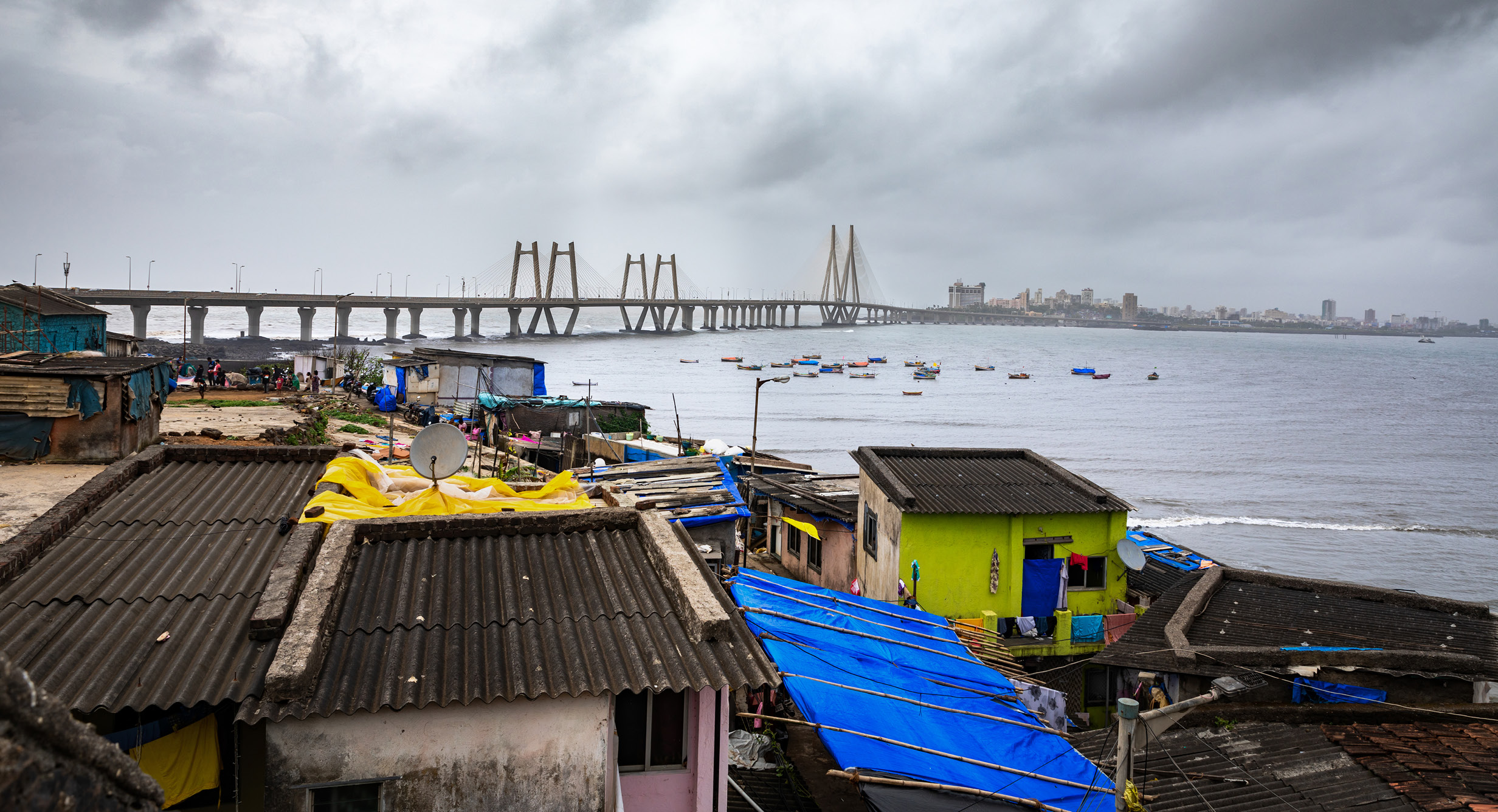
Reside Mumbai Competition: Housing for Equity and Well-Being
HKS Richmond’s Structured Symbiosis submission wins first place in the 2018 Global Architecture and Design Awards in the category for concept housing up to five floors.

One of the most significant design challenges of the 21st century is the global housing crisis, kindled by exploding urbanization. With 3 million people moving to cities from rural areas each week, issues around density, affordability, segregation, development and displacement combine to put immense pressure on cities.
These and other complex conditions are obstacles faced by the people of Mumbai, India. It is the fourth largest metropolitan region in the world with a population of more than 21 million people, more than half of them living in slums. Physical and social segregation exacerbates a city’s socioeconomic disparities, which live at odds with its long-term prosperity. If the health of a city depends on the well-being of all its residents, can mixed-income housing address the issue through different combinations of spatial, financial, and social needs?
That was the challenge put forth by arch out loud in its Reside Mumbai Mixed Housing international open ideas competition. The competition asked entrants to design a mixed housing development on one of the last undeveloped area of Mumbai’s coastline. Entrants had to consider design solutions for the indigenous fishing community, the Koli people, who settled the area centuries ago – as well as cater to the Worli, a new demographic drawn to the affluent neighborhood. Bridging the socio-economic gap between different communities, enhancing existing public spaces, preserving historic urban fabric, incorporating strategies for sea level rise and related climate change impacts while responding to the site’s dramatic views were also part of the response.
Citizen HKS, our firm’s public interest design initiative, invited design teams to enter the competition, with four HKS teams from around the globe taking up the challenge. Here’s a summary of each team’s design thinking.
HKS Mexico City
HKS Mexico City’s response considered Mumbai’s vulnerability to monsoon flooding, which climate scientists predict will become more severe as the planet warms. Different from a traditional infill development, HKS Mexico City took a new approach to place-making by incorporating a wind study model, proposing a grid in which the architectural program is distributed. A variety of sustainability strategies are proposed to regenerate the Worli Koliwada district of Mumbai, including water management, housing, materials, public space, tourism and infrastructure.
HKS New Delhi: Worli Ko-Living
The design intends to strengthen the identity of the district’s fishing village, using its boats as an inspiration for the coastline. Equity in infrastructure, access to the public realm and views for all user groups informed the design vision. Myriad public buildings, plazas and open spaces create an inclusive environment. The modular residential unit uses a flexible structural grid. This sustainable community uses tidal energy, rainwater harvesting, water transport, pedestrian- and bicycle-friendly streets and equality-driven living. The goal is to create a future-ready, resilient community, rooted in local context with aspirations of a global metropolis.
HKS Richmond: Structured Symbiosis
This entry’s goal is to celebrate and advance the existing Koli culture, its historical significance and the Koli way of life, through a hierarchy of open spaces and spatial organization. Ultimately, the relationship between Kolis and non-Kolis is strengthened through design strategies that are informed by and rooted in the community context and history. This STRUCTURED SYMBIOSIS is developed through community-oriented spaces and organic layouts with areas of pause, encouraging social interaction. Tight-knit streets, panoramic spatial volumes, vibrant colors and a strategically programmed landscape create a living environment bringing the Kolis and non-Kolis together.
HKS Washington D.C.: Symbiotic Equity: Water/Land. Order/Chaos. Public/Private. Rich/Poor. Past/Future.
Mumbai is a city of contrasts. Originally a series of seven small islands, the city is shaped by water and has been in a constant state of growth, transformation and renewal. And yet, given these contrasts, there are unique interdependencies and synergies. The HKS Washington D.C. proposal seeks to amplify these relationships by creating a scalable, self-sustaining, symbiotic ecosystem that responds to the sites unique culture, history, geography, and complex social structures. In doing so, the program establishes strategies that become a model for economic, social, spatial, and ecologic equity in the city.
In Praise of Design Competitions
Win or lose, entering design competitions has several benefits including initiating dialogue and fostering collaborative exploration across our international offices, helping us develop a deeper understanding and appreciation of one another’s cultures. It’s also just plain fun, adding buzz, excitement and passion that moves energetically around our design studios and empowers young designers.
Competitions make us better designers, thinkers and proud to be in a profession that impacts society in a profound way while feeding our collective design soul and creating avenues to truly become One HKS.
